Table of Contents
If you’re a tax lien investor, Bibb County, Alabama, offers some great opportunities.
Whether you’re brand new or you’ve been around the block, understanding the Bibb County, Alabama tax lien sale process is key to making a smart investment.
In this guide, I’ll walk you through everything you need to know about the Bibb County tax lien sale process — from the basic steps to some practical tips that’ll help you avoid costly mistakes.
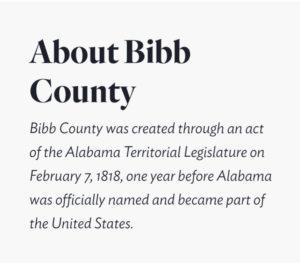
Image Credit: https://bibbal.com/about-bibb-county/
The Basics of Bibb County’s Tax Collection Process
Every year, property taxes in Bibb County are due on October 1.
If the property owner doesn’t pay those taxes by December 31, the taxes are considered delinquent.
At that point, the county starts the process of collecting what’s owed, which ultimately leads to a tax lien sale.
Bibb County gives property owners plenty of time to pay up.
They send delinquency notices starting January 1, and they begin advertising the list of delinquent properties in April.
If the taxes still aren’t paid, the property goes to auction.
Action Tip: Mark your calendar for April or May— this is when the annual tax lien sale happens.
If you’re serious about investing, start researching properties well before this time.
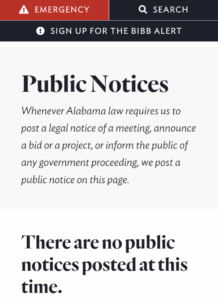
Image Credit: https://bibbal.com/public-notices/
Who’s Running the Show?
The tax lien sale in Bibb County is run by several key players.
The probate judge, revenue commissioner, and the tax collector work together to handle everything, from compiling the list of delinquent properties to conducting the actual sale.
These are the people you’ll deal with if you have any questions or need official documents.
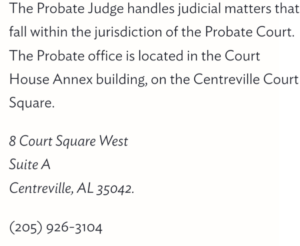
Image Credit: https://bibbal.com/the-probate-office/
What Kind of Properties Are Sold?
At the Bibb County tax lien sale, you’ll find a variety of property types on the auction block.
This could include:
Residential homes
Commercial buildings
Agricultural land
Vacant lots
Even condemned or undeveloped properties
Action Tip: Be picky. Some properties may have serious issues, like zoning restrictions or title problems.
Always research the property before bidding.
When and Where Is the Sale?
The sale typically happens in April or May each year, right in front of the Bibb County Courthouse.
Check local newspapers or the county’s website for exact dates and details closer to the event.
Pro Tip: Show up early if you’re attending in person.
Get familiar with the environment, ask any last-minute questions, and make sure you have everything ready before the auction starts.
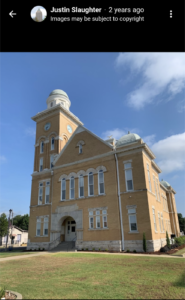
Image Credit: Bibb County Courthouse Search
How the Sale Works: The Bidding Process
Bibb County uses the Premium Bid Method.
That means the bidding starts at the total amount of delinquent taxes owed on the property, and the highest bidder wins.
The excess amount (overbid) goes into the county’s general fund, and you, as the winning bidder, walk away with a tax lien certificate.
If no one bids on a property, the tax lien is “struck off” to the state, meaning Alabama takes ownership.
You can later buy those unsold liens directly from the state.

What Is a Tax Lien Certificate?
When you win a bid, you don’t actually own the property — yet.
What you own is the tax lien, represented by a tax lien certificate.
This gives you the right to collect the debt, plus interest, from the property owner if they decide to redeem the property (pay off their taxes).
In Bibb County and the state of Alabama generally, the tax lien interest rate is a solid 12% per year.
If the property owner doesn’t pay within three years, you could eventually apply for a tax deed, which transfers full ownership to you.
But it’s important to know that owners can redeem their property at any time during this period.
Action Tip: Always verify the condition of the property and whether it has any other liens (mortgage, IRS, etc.).
You don’t want to end up with a property that comes with more problems than it’s worth.
How to Register for the Auction
You’ll need to register ahead of time if you want to participate in the auction.
Contact the Bibb County Revenue Commissioner’s Office for the registration process.
Generally, you’ll fill out a Bidder’s Card and may need to submit an IRS Form W-9 (or W-8BEN if you’re an international bidder).
There’s typically no charge to register, but you might have to post a deposit, especially if you plan to bid on multiple properties.
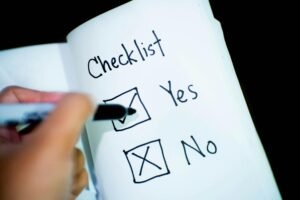
What to Do Pre-Sale
Before the sale, do your homework.
Get the list of delinquent properties from the county, which is advertised in local papers and sometimes available digitally.
Use this list to start researching.
- Parcel Numbers: These will help you look up more detailed information about the property.
- Owner Info: Get a sense of who currently owns the property and why it might be delinquent.
- Property Research: Dive into public records to check for other liens, easements, or zoning issues.
Make sure you’re aware of any hidden problems that could reduce the property’s value.
Action Tip: Go beyond the auction list.
Drive by the properties to get a real sense of what you’re bidding on.
You don’t want any surprises after the sale.
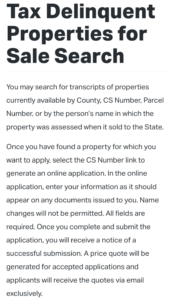
Image Credit: https://www.revenue.alabama.gov/property-tax/delinquent-search/
What to Expect at the Sale
On the day of the sale, get ready to bid.
Auctions in Bibb County are straightforward, but you’ll need to be prepared.
- Payment: If you win, you’ll need to pay the full amount immediately, usually within a couple of hours.
Bring cash, certified funds, or money order — personal checks or credit cards are usually not accepted.
- Tax Lien Certificate: Once you’ve paid, you’ll receive your tax lien certificate.
This is your proof that you now own the lien on that property.
Pro Tip: Stay calm during the bidding process. Don’t get caught up in bidding wars — know your limit and stick to it.
What to Do Post-Sale
After the sale, there’s still some work to do.
The property owner has up to three years to redeem their property.
If they pay off their debt, they’ll pay you the full amount of your bid, plus 12% annual interest.
If they don’t redeem the property, you can apply for a tax deed and possibly take ownership of the property.
If the owner redeems the property, they must cover the delinquent taxes, interest, and any additional property taxes you’ve paid since the sale.
You’ll get your investment back plus interest, making it a win-win situation either way.

Conducting a Tax Lien Search
Finding delinquent properties before the auction is crucial. The Bibb County Revenue Commissioner’s Office can help you obtain the tax sale list. This list will include key information such as:
- Parcel Number
- Legal Owner
- Property Description
Use the parcel number to look up the property’s details online.
If the county doesn’t offer an online database, you may need to visit the Tax Assessor’s Office to dig into public records.
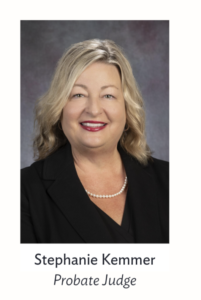
Image Credit: https://bibbal.com/the-probate-office/
What You Should Know Post-Sale
There are two key things to keep in mind post-sale:
- Redemption: The property owner has up to three years to redeem the property by paying you back the taxes plus 12% interest. If this happens, you’re paid out, and the lien is removed.
- Foreclosure: If the property isn’t redeemed after three years, you can apply for a tax deed, which grants you full ownership.
If a property owner doesn’t redeem their property, and you don’t apply for a tax deed within 10 years, the lien expires, and you lose your investment.
So, make sure you keep track of your certificates and follow up when necessary.
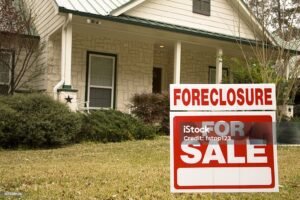
Final Thoughts: Is Bibb County Worth It?
Investing in tax liens in Bibb County can be highly rewarding, but like any investment, it comes with risks.
The 12% interest rate makes this county attractive for investors, but always do your research beforehand to avoid unpleasant surprises.
Next Steps:
- Step 1: Start by getting the official list of tax-delinquent properties from Bibb County.
- Step 2: Research the properties thoroughly, and don’t skip the step of driving by to take a look.
- Step 3: Register for the auction and set a budget for yourself before you start bidding.
Remember, the key to successful tax lien investing is preparation.
Be diligent, do your homework, and approach the auction with a solid plan in mind.

Pro Tip: You can certainly continue to research these tax liens the long way which is 100% free but very tedious and time-consuming, or you can use a high-quality research software such as Tax Sale Resources to get your time back!
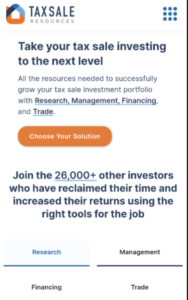
Image Credit: Tax Sale Resources Homepage
They Provide:
Access To Upcoming Auctions
Access To Property Reports
Access To Over The Counter List Downloads
Access To Auction Raw List Downloads
And Much More!
Sign Up For A 7-Day Trial Today.
Finally, I believe the best way I’ve found to learn is by doing and “failing forward” as they say.
I bought my 1st investment property in 2020 during the middle of (you know what..cough..cough), and I had no clue what I was doing despite spending months researching how to invest in real estate.
But guess what? I did it.
And learned a ton of valuable lessons along the way!
So, If you’re truly interested in tax lien investing, consider subscribing to my newsletter and following along my journey from landlord to “leinlord” as a new tax lien investor.
As Leinlord grows, my goal is to provide a “behind the scenes” inside look at the tax lien auctions I participate in and thoroughly profile any properties that I win.
You’ll get to ride along with me as I walk through my risk analysis, deal structures, ROI calculations, bidding tactics, and exit strategies all documented for the world to see (even my L’s).
So please show your support and sign up for my newsletter OR if you are a Google Chrome user hit that “follow” button!
(screenshot instructions found on my about page:))
Additionally, if you’re interested in booking a consultation to talk tax lien strategy feel free to schedule a one-on-one here.
P.S. I am still fairly new to tax lien investing but willing to share what I’ve learned so far, so please keep that in mind before you book!
I’m not an expert… (yet)
Look forward to having you in the Leinlord community!
**Disclaimer
I am not a lawyer, financial advisor, or tax professional. This article is based on my research and experience as a tax lien investor. The information provided is for educational purposes only and should not be considered legal, financial, or tax advice. Always consult with qualified professionals before making any investment decisions or taking action related to tax liens. Laws and regulations vary by jurisdiction and can change over time, so verify all information independently. Investing in tax liens carries risks, and past performance does not guarantee future results.

![You are currently viewing The Bibb County, AL Tax Lien Sale Broken Down [A-Z Guide]](https://leinlord.com/wp-content/uploads/2024/09/word-image-1282-1.jpeg)

